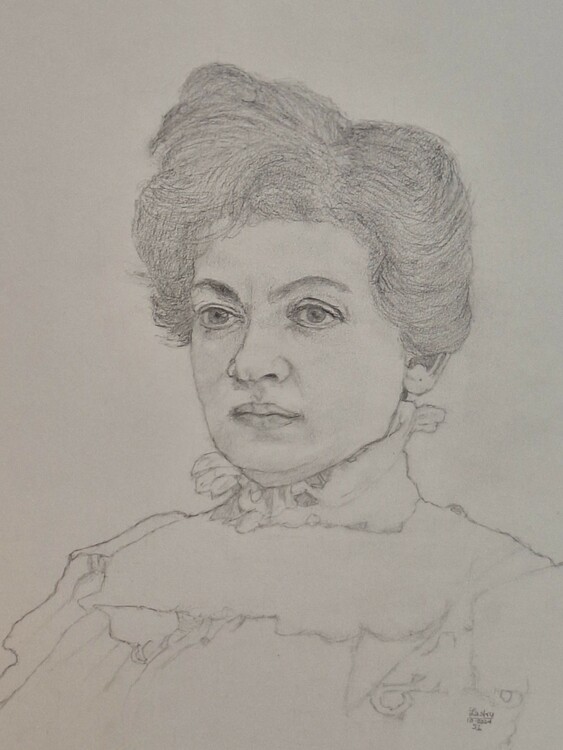
Keni Lipzin
Keni Lipzin was born approximately in 1856 in Zytomir, Ukraine. Her father was a stagecoach driver and a drunk. At ten years of age, she lost her mother. She was raised by a stepmother in a village near Zytomir, where it was her misfortune to suffer. When she was still a child, she was given away to a laundry seamstress. She received no formal education.
According to the theatre historian B Gorin, the Yiddish playwright Jacob Gordin brought details of her life into his drama, "Khasye di yesoyme," or "Chasia the Orphan."
Lipzin talked about this. She said:
"You have no doubt seen Gordin's 'The Orphan' -- here you have my biography. 'Chasia' -- there I am actually, I alone. This I have recounted to Gordin, the subject for the "Orphan." This is my own life, although my father is not any 'Motke Streykhl.' ... However, my stepmother, oy, oy, this was a stepmother."
According to the news, Lipzin, against her will, had married an employee of her father, but after six months she fled the town for Smila, and there she became a seamstress.
She had run away from an arranged marriage, running to Smila, where she was first discovered (originally for her singing voice) and put on stage by Israel Rosenberg in 1880. She originally used the stage name Keni Sonyes, but after marrying theatrical prompter Volodya Lipzin in London in the mid-1880s, she took his last name.
After the death of Jacob P Adler's wife, the actress Sophia Oberlander, in London in 1886, Lipzin played dramatic roles opposite Adler and joined Adler when he came to America, playing with him in Chicago, before travelling to New York City in 1889, where she played first in the company of Moyshe Finkel and David Kessler. Then she rented her own theatre.
In her own theatre, she also put on works by Victor Hugo, Alphonse Daudet, Gerhart Hauptmann, and Leonid Andreyev.
Keni Lipzin was most famous for playing the lead roles in two Jacob Gordin plays, "The Slaughter" and "Mi-rele Efros," the former an attack on arranged marriage, the latter a story about an embittered matriarch who is finally reconciled again to her family.
Abraham Cahan, an editor of the Jewish Daily Forward newspaper, said of her performance in "Mi-rele Efros":
"In her manner, Mrs. Lipzin is a better Mi-rele than Madame Kaminska. Mrs. Lipzin's Mi-rele is not a Jewish person. Her pride, her good-humored humor, her sovereign spirit, her actual mind -- all this does not smell like Lithuania, only like Shakespeare. She is not proud like other Jews, but with a queen's lyrical pride. She goes on the stage not as a sovereign, rich Grodno or a Berdichev woman of valor, but as a queen (A queen, after all, goes after a man, too, but in classical productions, it is already accepted that a king must go with a 'classical' footprint.) But when all this is forgiven for a while, you must add that Mrs. Lipzin creates a bright figure. Let me be a classic Mi-rele, my father is a Mi-rele. She makes you cry, She instills in you all the feelings, What the author has, God in his mind awakens."